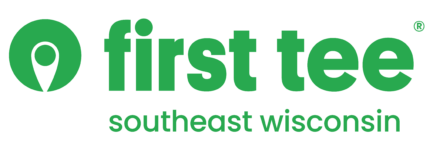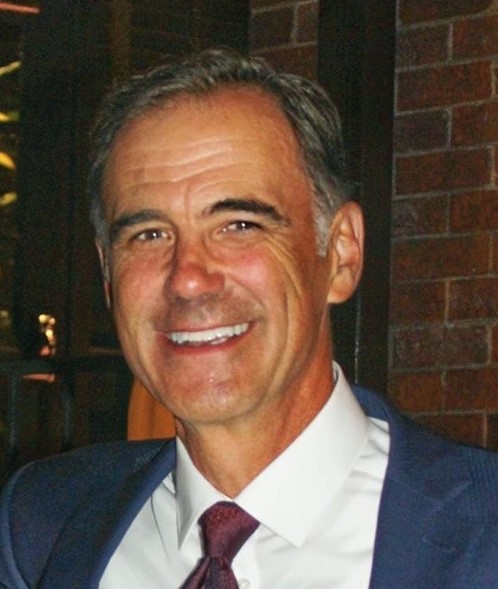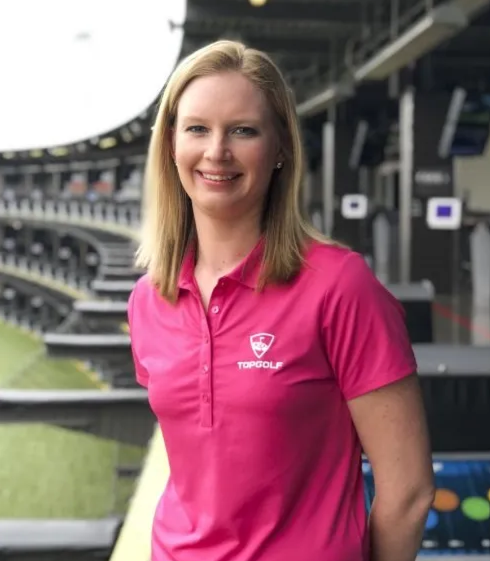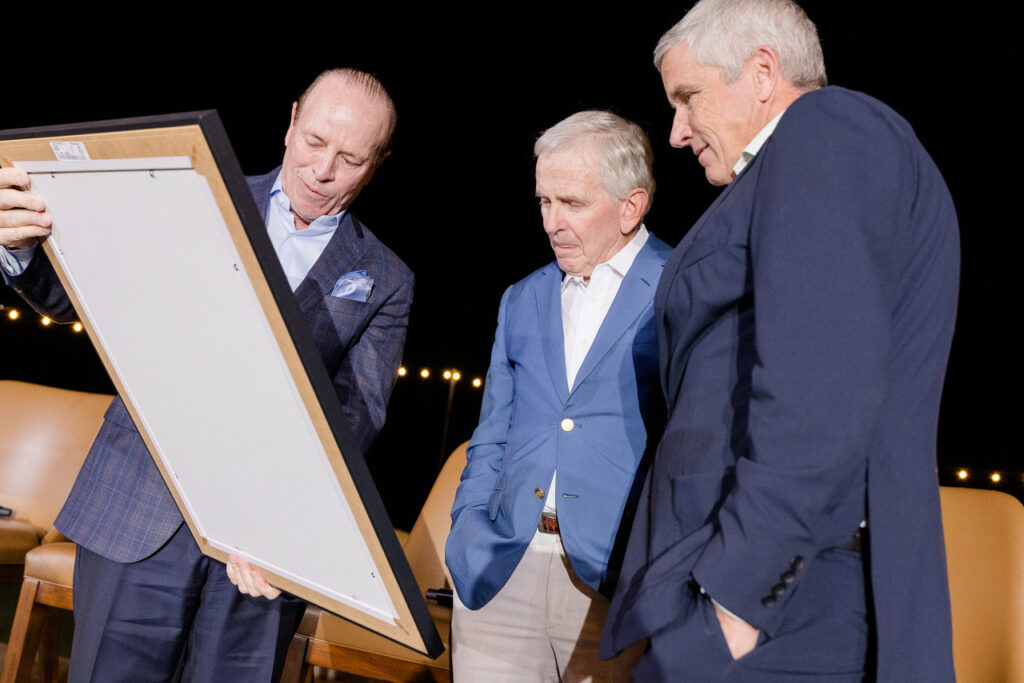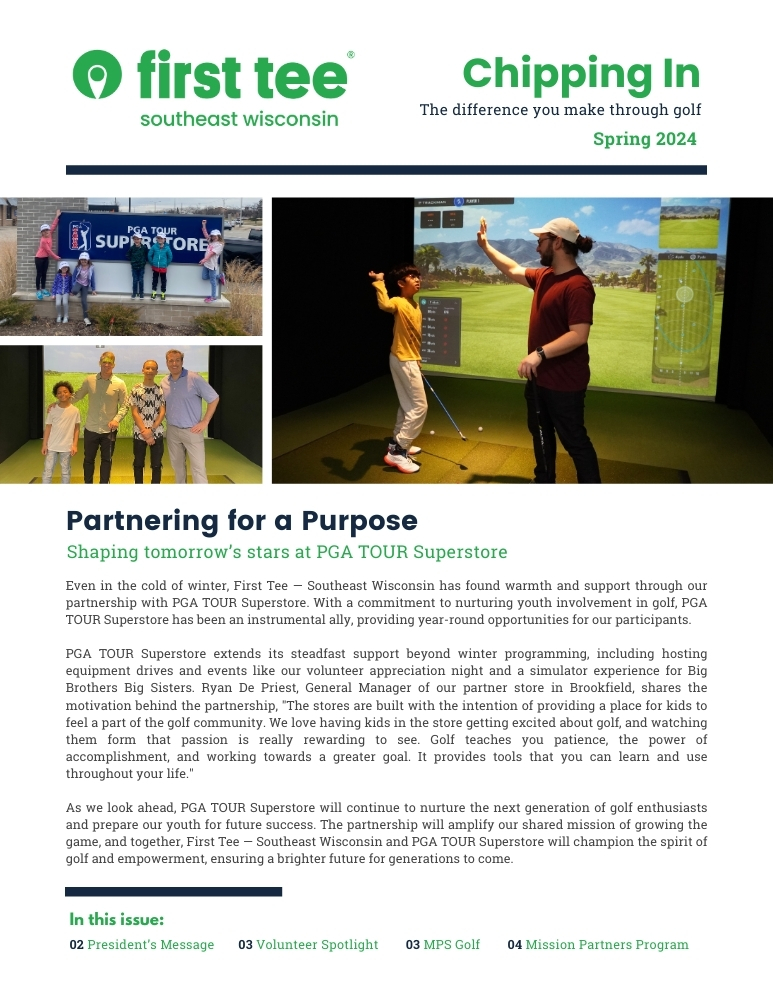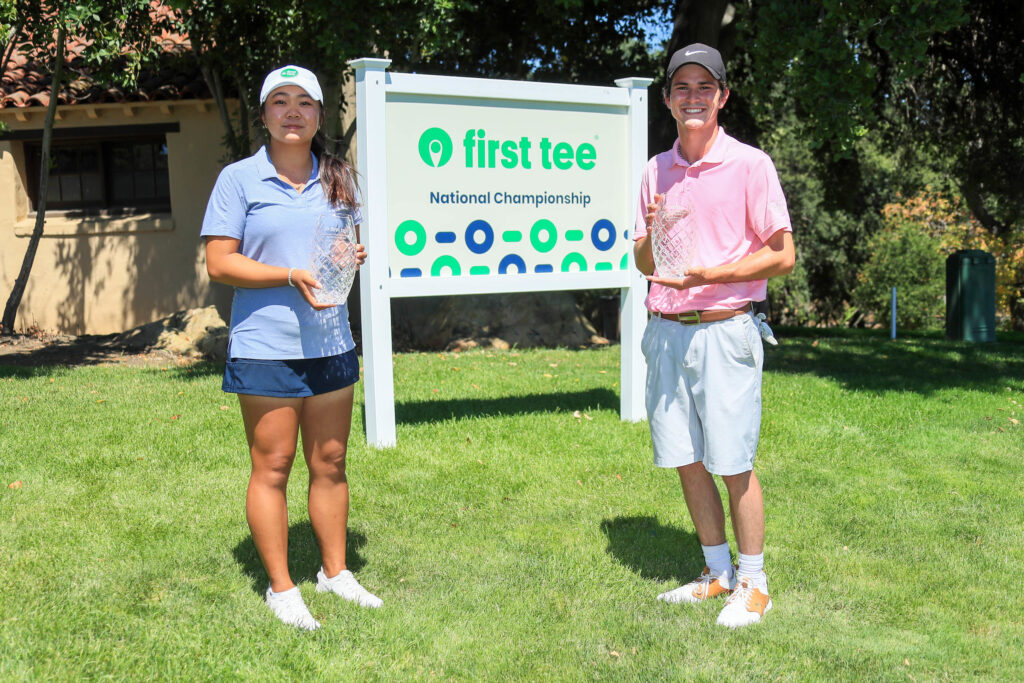
Each year, a group of exceptional First Tee teens gather at the First Tee Innovators Forum, where they develop a meaningful service project to bring home to their community focused on education, health, human rights or environmental sustainability. By bringing together passionate participants from across the chapter network, the Innovators Forum provides a distinctive enrichment experience, engaging teens who share a similar desire for learning and generating changes in their communities.
Sophia Waddell from First Tee – Central Coast attended the 2023 Innovators Forum in Ponte Vedra Beach, Florida, home of the PGA TOUR. At her chapter she works as a junior coach and noticed that there were very few participants with special needs. Sophia’s sister, Ava, was born with a chromosome abnormality that impacts her daily life, so Sophia was aware that golf is a good sport for someone with special needs to pursue as it is quiet and relies less on balance or mobility than other sports.
When Sophia was tasked with creating a meaningful service project, she knew immediately that she wanted to create a special needs golf program that would operate free of charge at First Tee – Central Coast. As soon as she returned home from Innovators Forum she began working with her coach, Darren Avrit, to get the program off the ground.
Together, coach Darren and Sophia found multiple community partners to put the project in motion. They worked with the North County Adaptive Sports and Recreation Program to identify participants, and after having the program approved by their board, invited a group to participate.
Additionally, they worked with coach Darren’s kinesiology class at California Polytechnic University to help provide additional volunteer support so that there was at least one support person for each class participant. Dairy Creek Golf Course, the host site of First Tee – Central Coast, was happy to host the program. With this central and consistent programming location, Sophia was able to utilize a local rideshare program for adults with disabilities to provide the participants with transportation to and from the golf course at no cost due to a NCASARP grant.

The class ran the second Saturday of every month from February to June 2024. They were able to use an adapted version of the First Tee curriculum to provide fun but appropriately challenging activities for the participants. Sophia and the team at First Tee – Central Coast hope to continue this program into the spring of 2025 and beyond.
“As an Innovators Forum member, I was able to use the skills I learned of networking and building the relationships that were needed so that we could get this project going quickly,” said Sophia. “Being able to bring groups together as partners in a goal allowed each group to increase their own effort in helping people with disabilities in the community.”
The 2024 First Tee Innovators Forum will take place next week in Phoenix.
Learn more about First Tee’s national participant opportunities.
